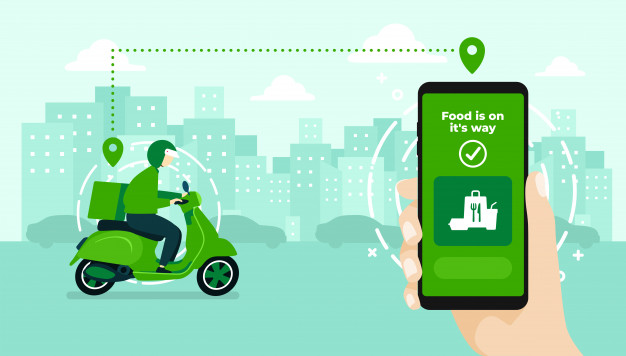The Singaporean Restaurants Using new business models, industry innovations and modern tech to beat COVID-19
How Singapore Restaurants are Using Innovation and Technology to Stay Afloat during the Coronavirus

Contents
COVID-19's Impact on Singapore's Food and Beverage Industry
As is to be expected, COVID-19 has had quite a severe impact on Singapore's food and beverage (F&B) industry. According to a survey by reservation platform, Chope, "93 per cent of restaurants have seen a dip in revenue, 78 per cent are not prepared to last longer than six months if things do not get better, 80 per cent are reducing staff to cut costs, and a third have asked full-time staff to take compulsory leave."
This is not just bad for Singapore's restaurants, but is also a major dent in Singapore's economy as "food and beverage contributes 0.8 per cent to Singapore's Gross Domestic Product. The estimated 12,000 restaurants here employ 200,000 people, whose jobs are now in jeopardy."

Singaporean F&B Businesses are Innovating to Raise Revenue
It's not all bad news, though. Many restaurant owners in Singapore are choosing to fight back so that their businesses don't go under and so that customers still have access to their favorite food in these troubling times. The same survey from Chope showed that 44 percent of respondents were using "targeted discounts to particular groups of people or those who live or work near the restaurant." Targeting customers can be done through customer relationship management (CRM), which often comes built-in to POS systems.
Targeted discounts can be an effective way to ensure that the right customers see discounts that are relevant to them. By focusing on where customers live or work, restaurants can target customers who are close to their location and more likely to visit. Despite the virus, people still need access to great food, and by using CRM, you can check your customer list for those customers who would benefit most from a discount. This, in turn, could help your business bolster revenues and stay afloat during COVID-19.

Automate With Mobile Apps
Since many customers will not physically wish to visit your business during COVID-19, it makes sense to create a safer and more-convenient experience for them in the form of a mobile user app. One example of a Singaporean F&B business using mobile apps is Al-Azhar Group. This new business tactic was implemented when CEO, Muhammad Husain Mansoor, realized that he had to "improve his business model to keep it sustainable during this difficult time." Citing the benefits of a mobile app during COVID-19, he said, "Previously, our customers could only phone in their orders or come to our outlets for takeaway. There were a lot of manual operations involved."
Mr Husain claims that "everything will soon be automatic" and that he had the idea of implementing a mobile app even before the Coronavirus hit. Utilizing new technology and providing customers with a far more convenient method of getting their food is beneficial even without the threat of the virus. However, since so many people now stay at home, a mobile app allows customers to "browse an online menu, pick their selections and make payment online." The reduced contact with restaurant staff also helps protect workers and customers, alike.


New Revenue Stream with Online Web Store
Another Singaporean businessperson looking to innovate and provide a new experience to customers during the Coronavirus pandemic is Singaporean pastry chef Janice Wong, who owns 2am:dessertbar and 2am:lab. She has recently launched an online web store named Bake at Home, which offers customers access to recipes, cake pre-mixes and baking ingredients. The key reason for shifting to this model according to Janice Wong is "we encourage customers to stay at home, be safe and instead we will bring the Janice Wong experience to you at your home." So far, "She projected at least a 30 per cent increase in online sales" from her new enterprise.
Pan Pacific Hotels Group is also launching e-shops for a number of its F&B businesses. Since shifting to an online model, the group has said "We have seen a steady take-up of online orders for all platforms." Finally, Al-Azhar Group's "website is also being revamped to cater to online orders."
Implementing an online F&B business model has plenty of merits even beyond the COVID-19 crisis. Mr Kapil Tuli, who is Professor of Marketing of the Singapore Management University and director of the Retail Centre of Excellence at the Lee Kong Chian School of Business at SMU said, "Transforming traditional business modes to go online is the right way to go and businesses which tap on this will do better than the others even after the crisis tides over, because by then, they will be able to tap on an omni-channel approach."

Reach More Customers By Shifting to Delivery
Switching to a delivery-based business model is one of the key ways in which F&B businesses are keeping revenue flowing. Al-Azhar Group is also dabbling into the food delivery side of things as "some of its 150 workers across three outlets will double as in-house food delivery riders." For Al-Azhar Group, the benefits of using this model are twofold: Firstly, they revealed that"this was one way the company could keep its workers gainfully employed," and secondly, it serves as a way to bring the restaurant experience to customers who are observing social distancing measures.
Given that modern POS systems often offer the option to switch modes between dine-in and delivery, managing the back-office aspects of delivery may not be that tricky. Businesses who have yet to take the leap into delivery can find help from Enterprise Singapore, as it announced that "Amid the COVID-19 outbreak…it would provide support for F&B businesses to get onto food delivery platforms by partly covering the commission costs."

SG Government Offers Hope for F&B Industry Employers and Employees
Though the market is tough right now for F&B businesses in Singapore, there are more government aid measures that will be implemented soon. For example, a $5.1 billion Solidarity Budget has been announced, with "Deputy Prime Minister Heng Swee Keat [saying] businesses will get additional wage support for local employees this month [April, 2020]." The additional wage support promised will "raise the wage subsidy for all firms to 75 per cent of gross monthly wages, for the first $4,600 of wages paid in April 2020."
The Jobs Support Scheme (JSS) payout will also be pushed forward with some companies being paid in April. Deputy Prime Minister Heng, who also serves as Finance Minister, said, "I expect firms to make use of this JSS support to continue paying your workers and refrain from putting workers on no-pay leave during this period, or worse, retrenching them."